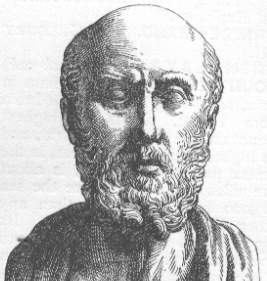What is Holistic Medicine?
What is Holistic Medicine?
[Originally published in Vision Magazine October 2007]
In the city of San Diego we have an HHP designation, which stands for Holistic Health Practitioner. This title is given to Massage Therapists or Bodyworkers with over 1000 hours of training and who have passed a certification exam. Many of these practitioners do indeed provide holistic services because their approach to the body is designed to enable a natural healing response and harness the power of intention. This recognition of the whole person is both refreshing and unique in our very specialized and compartmentalized culture.
Holistic is a word that’s thrown around often in alternative and complimentary healthcare professions. The word in of itself can relate to many different fields of study and practice. Many have used holistic methods in the past spanning from to Hippocrates in Greece to the Yellow Emperor in ancient China. Although the meaning and theories that fall into this realm of healthcare have evolved, the basic tenets have remained the same. Holistic refers to a method of treating the whole person. Some choose the spelling “wholistic” to emphasize this whole person ideology embodying the power of nature and harnessing the patients belief in the therapy. We even see a faint understanding of this concept in modern western science. Although the allopathic approach has a long legacy of specialization and reduction of the whole person down to their component parts.
Hippocrates practiced medicine around 400 BC in ancient Greece and is known as the “father of medicine”. He believed in the healing power of nature and the body’s innate ability to heal itself. In this way he treated the whole person and recognized the need to nurture the body’s homeostasis through his humble and passive treatment methodology known as Humorism. Quite a legacy has been left to western medicine and the world in the form of his ethical tenets, enhanced professionalism and cleanliness. These practices live on today as reminders of Hippocrates’ influence in modern western medicine.
Eastern medicine has for ages seen emotion and the mind play an important role in health. In the writings of the Yellow Emperor, dating back to 2686 BC, he laid out the major points in Traditional Chinese Medicine. He postulates that all our organs correspond to a specific emotional state and each have an energetic pathway through the body called a meridian. These meridians carry energy and can be affected by emotional states or physical ailments. This energy is called “chi” and when it’s flowing freely we are healthy and happy. Acupuncture seeks to open up these energetic channels when they are blocked with the use of carefully placed hair thin needles, herbs, heat, tinctures and sometimes even lifestyle changes. Positive visualizations and energetic manipulations are used to enhance and direct this energy flow through movement practices such as Qi-Gong and T’ai Chi.
Western medicine has begun to take the placebo effect very seriously. Studies have shown that if you give someone an inert substance (a placebo) that has no legitimate physiological effect on their system, tell them it will make them feel better or heal a disease, then there’s some percentage of success. This isn’t because the substance did anything to these patient’s bodies, rather they believed in the healing effect and therefore their system responded positively. Acceptance of this fact in the scientific community is widespread and opens the door to developing a more holistic approach in western medicine by recognizing the power of intention.
I liken the placebo effect to the ability our mind or consciousness has in regulating our body. The human being is constantly trying to find homeostasis, or balance, even down to a cellular level. Holistic medicine takes this into account and aims to relieve blockages in the body and/or mind to achieve this aim. If there are physical, emotional or mental blockages all of these things have a negative effect on the body’s ability to heal itself. The power of intention and the role of nature are both forces that can shift somebody closer to or further from healing and wholeness.
A holistic approach is needed today more than ever. As a culture we have lost touch with a certain level of humanity and nurturing that these alternative approaches truly embody. But which path to take? We can look to the past for abundant answers and also to current methodologies that are starting to see with a more holistic vision. But ultimately the answers lie in your hands. After all, the heart of holism is simply asking the body what it needs to be a whole being.
Archie Underwood, BA, HHP is a Bodyworker and Rolf Structural Integration practitioner. He maintains a holistic practice in San Diego focused on relieving chronic pain and increasing awareness of posture and movement. Contact Archie at: www.rolfsi.com (619) 861-3232


